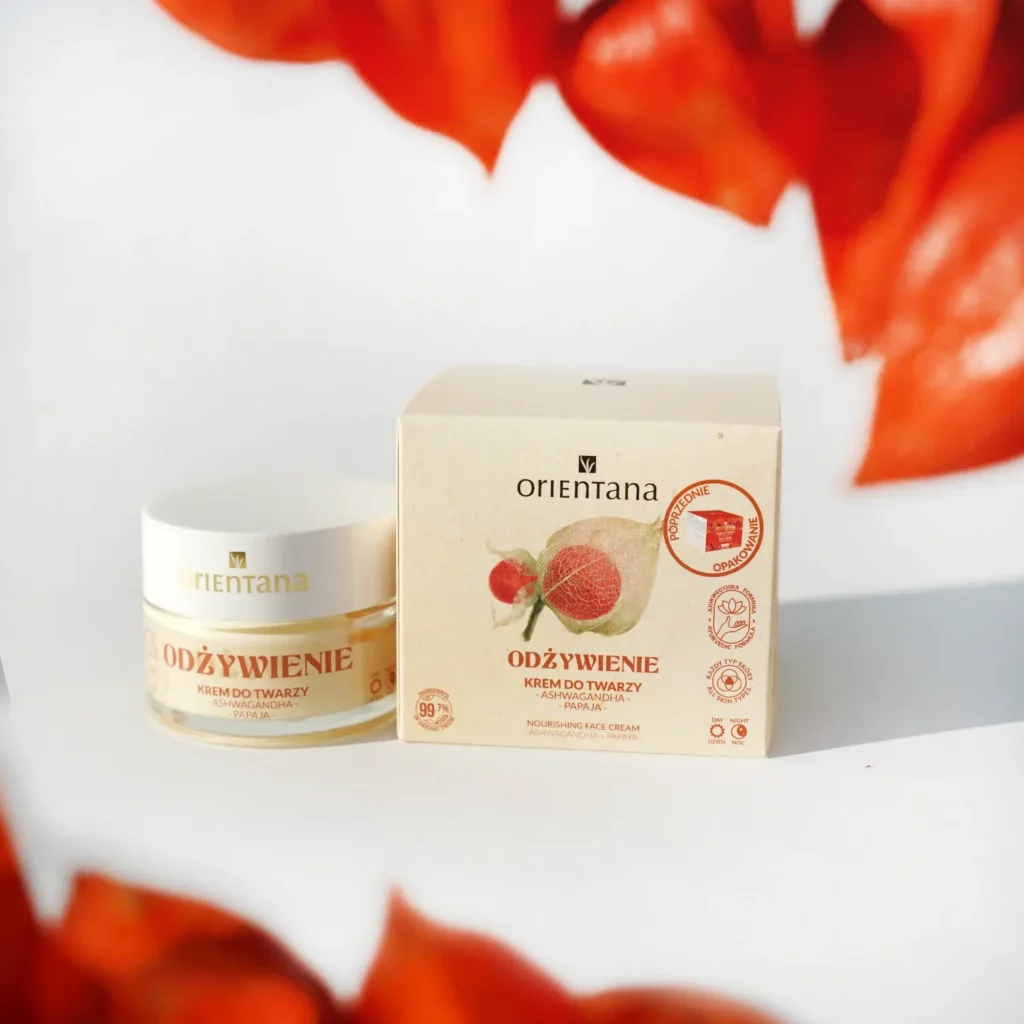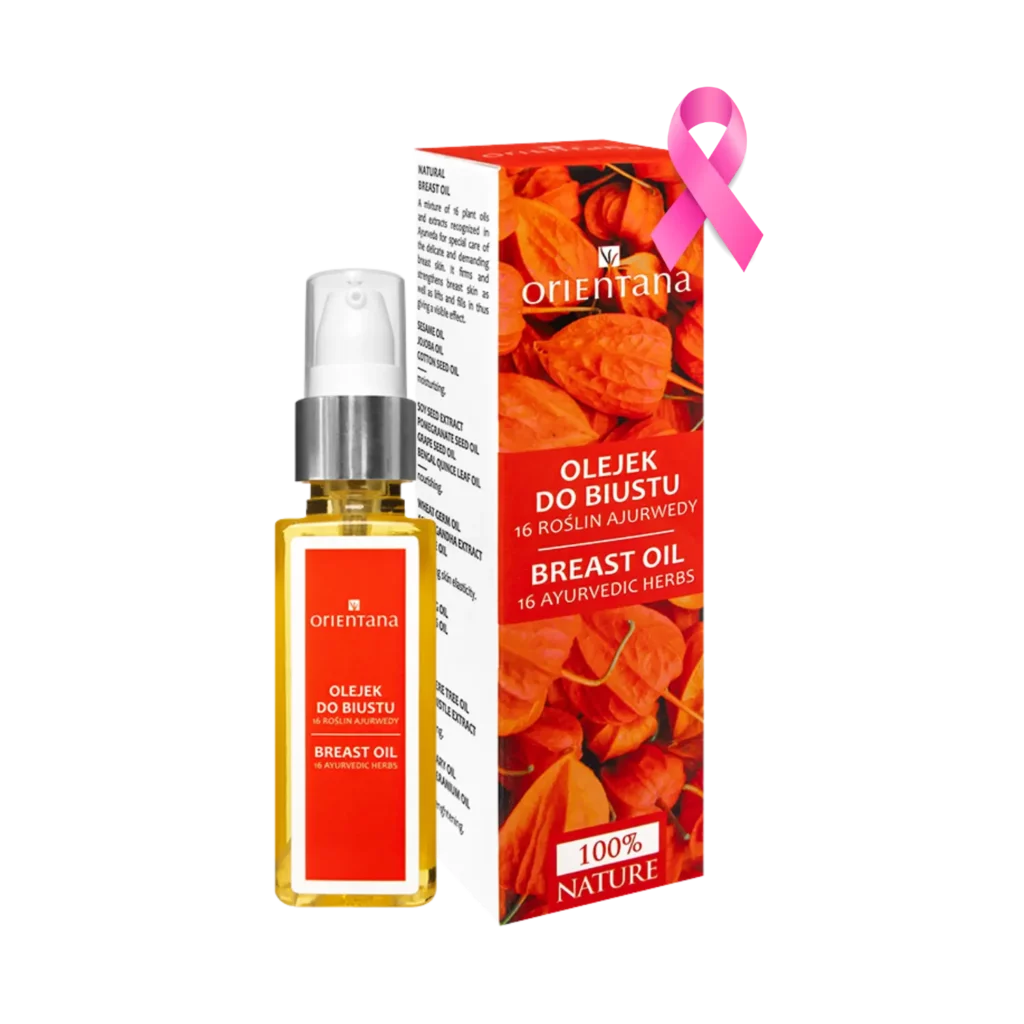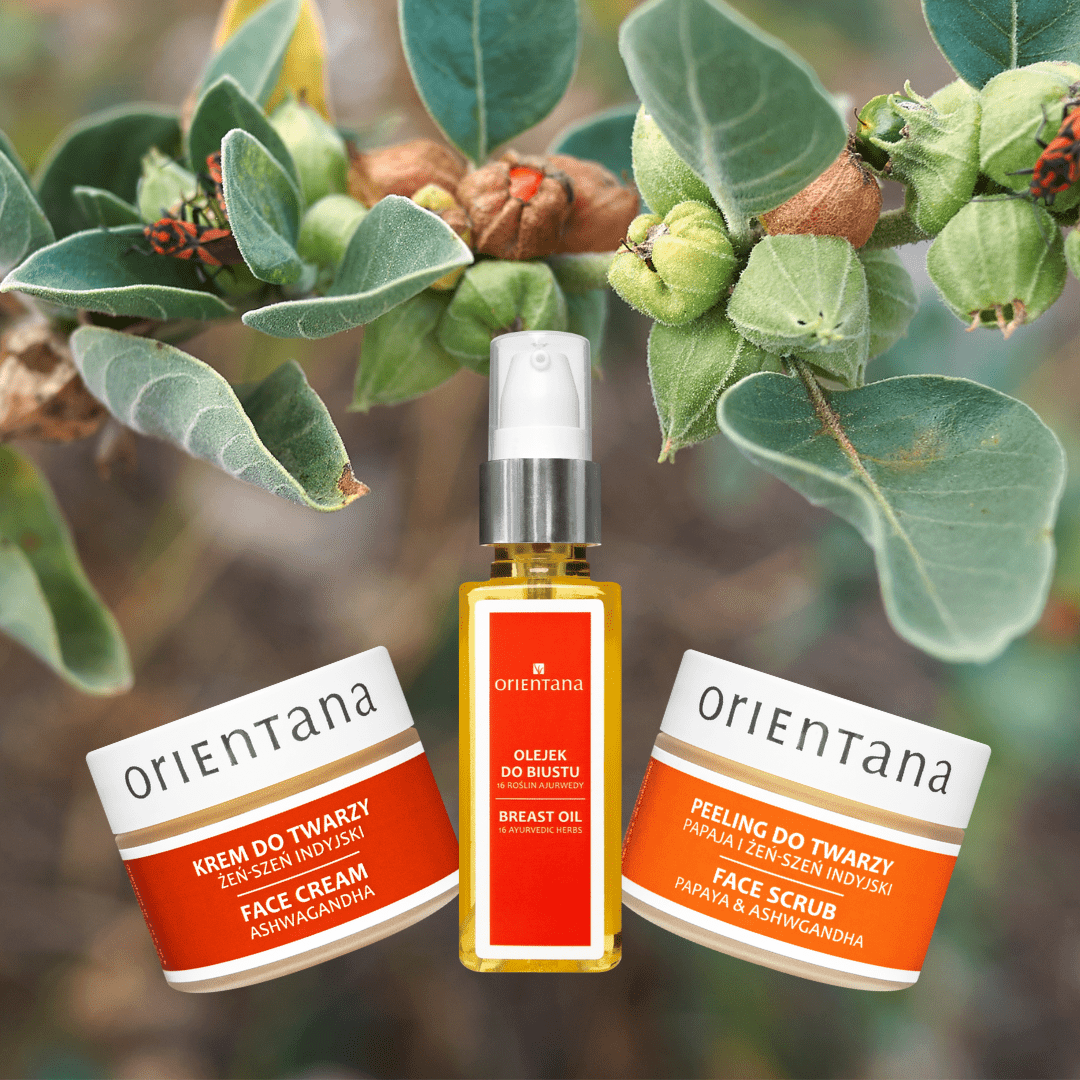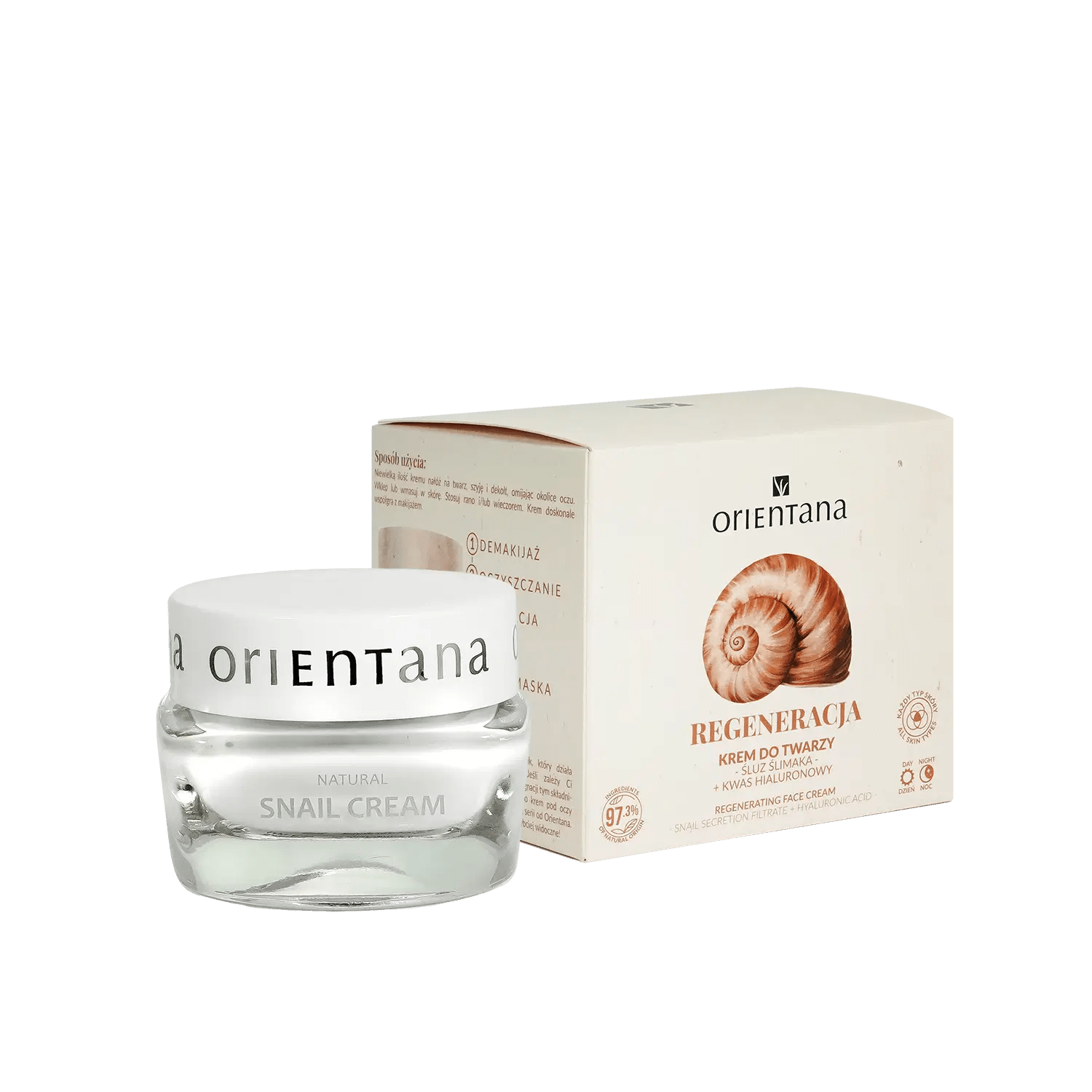Ashwagandha (Latin: Withania somnifera ), also known as "Indian ginseng" or "winter cherry," is an adaptogenic herb that has been used in traditional Ayurvedic medicine for thousands of years. Its name comes from the Sanskrit words for "horse scent" ( ashwa - horse, gandha - scent), which may refer both to the root's characteristic aroma and to its ability to give the body strength and vitality.
Ashwagandha is a shrub that grows primarily in India, the Middle East, and parts of Africa. The most prized part of the plant is its root, which has numerous medicinal properties. Modern scientific research confirms many of its traditional uses, which has contributed to the increasing popularity of the plant around the world.

Where does it grow and what does it look like?
It is a plant native to South Asia, primarily in India, Pakistan, and Sri Lanka. It grows wild in temperate areas such as steppes, deserts, and mountainous regions. Ashwagandha is also cultivated in other regions of the world, including the United States, Europe, Australia, and Africa, where the climate and soil conditions are suitable. However, the largest amounts of ashwagandha still come from its native habitat in India.
The ashwagandha plant typically grows to a height of 30 to 150 centimeters.
Its leaves are large, fleshy and oval, about 10-12 centimeters long. They are arranged alternately on the stem. The color of the leaves can be green to light green. The stem of ashwagandha is thick, woody and branched. It may have characteristic white hairs or warts.
Ashwagandha has bell-shaped flowers that are greenish-yellow to light yellow. The flowers are small, about 6-8 millimeters long, and grow in clusters at the ends of the stems. After flowering, ashwagandha forms spherical, orange berries about 1-1.5 centimeters in diameter. The berries contain numerous, tiny seeds.
It is worth noting that the described appearance of ashwagandha may vary slightly depending on the growing conditions and variety. Ashwagandha is often cultivated as a medicinal plant and used for its many health benefits .

The Effects of Ashwagandha on Health
Ashwagandha is valued mainly for its adaptogenic properties – it helps the body cope with stress and adapt to changing environmental conditions. Here is a detailed description of its effect on health:
Reducing stress and anxiety
One of the most studied effects of ashwagandha is its ability to lower stress and anxiety. Studies have shown that regular consumption of ashwagandha can lower levels of the stress hormone cortisol, which can help reduce symptoms of chronic stress and improve mental well-being.
Improving sleep quality
Ashwagandha affects the regulation of the sleep-wake cycle, which makes it an effective remedy for insomnia. It has a calming effect, making it easier to fall asleep and improving the depth of sleep.
Supporting cognitive functions
Studies suggest that ashwagandha may support cognitive functions such as memory and concentration. This is especially important for older people, for whom the plant may counteract age-related declines in mental abilities.
Strengthening the immune system
Ashwagandha has immunomodulatory properties, meaning it helps boost the body's immune system. It can increase the number of white blood cells, which are key in fighting infections.
Blood sugar regulation
Several studies have shown that ashwagandha may help maintain stable blood glucose levels, which is beneficial for people with diabetes or insulin resistance.
Support in the fight against depression
With its calming and balancing properties, ashwagandha can be used as a natural support in the treatment of depression. Studies show that it can alleviate depressive symptoms by affecting neurotransmitters in the brain.
Increased energy and physical endurance
Ashwagandha is often used by athletes as a performance supplement. It can increase muscle strength, endurance, and energy levels, making it a natural workout aid.
Sexual health benefits
In Ayurvedic medicine, ashwagandha has traditionally been used as an aphrodisiac. In men, it can support reproductive health by improving sperm quality and testosterone levels, and in women, it helps regulate hormones and reduce menopausal symptoms.
Anti-inflammatory and antioxidant effects
Ashwagandha contains compounds with anti-inflammatory and antioxidant properties, such as withanolides, which help support cell health and protect the body from damage caused by free radicals.
Support for chronic diseases
Some studies suggest that ashwagandha may help the body fight chronic diseases such as heart disease, high blood pressure, and cancer. Although these properties require further study, the results so far are promising.
How does Ashwagandha work on the skin?
Ashwagandha ( Withania somnifera ) is valued in cosmetology for its multifaceted effects on the skin, which result from its unique bioactive ingredients. The properties of this plant support skin regeneration, protect against oxidative stress and have anti-inflammatory effects. Its regular use in cosmetics can bring visible improvement in the condition of the skin, both in aesthetic and health aspects.
Anti-aging effect
Ashwagandha has strong antioxidant properties that help neutralize free radicals responsible for accelerated skin aging. The compounds in it support cell regeneration and reduce wrinkles, improving skin firmness and elasticity.
Relieves inflammation and irritation
Ashwagandha extract has anti-inflammatory properties, making it particularly beneficial for people with skin conditions such as acne, eczema, and psoriasis. It helps reduce redness, swelling, and irritation, speeding up the skin's healing process.
Moisturizing and protecting the skin barrier
Ashwagandha supports the skin's natural protective barrier, helping it maintain an appropriate level of moisture. This makes the skin better protected against external factors such as pollution, UV radiation and dry air.
Protection against oxidative stress
The skin is exposed to environmental factors every day that cause oxidative stress. Thanks to its powerful antioxidant content, ashwagandha protects the skin from damage, reducing the risk of discoloration and other signs of photoaging.
Sebum level regulation
Ashwagandha helps balance sebum production, making it suitable for both oily and dry skin types. Maintaining the right level of oil in the skin reduces the risk of clogged pores and breakouts.
Improvement of skin tone
Regular use of ashwagandha cosmetics can help even out skin tone. This plant helps remove discolorations and has a brightening effect, giving the complexion a healthy glow.

Active substances in Ashwagandha
Ashwagandha is a unique cosmetic ingredient that combines anti-aging, anti-inflammatory and regenerative effects. Thanks to the wealth of bioactive substances such as withanolides, alkaloids, antioxidants and phytosterols, it is perfect for the care of various skin types. Its regular use can improve the skin's color, elasticity and hydration, while protecting it from oxidative stress and external factors.
Ashwagandha contains many bioactive substances that are responsible for its beneficial effects on the skin:
Withanolides
- These are compounds with strong anti-inflammatory and antibacterial effects.
- They help fight bacteria and fungi on the skin while reducing redness and swelling.
- They accelerate the regeneration of the epidermis, which supports the healing of wounds and skin damage.
Alkaloids
- They have a soothing effect on the skin, relieving irritation and itching.
- They also have adaptogenic properties, supporting the skin in the fight against environmental stress.
Antioxidants
- Substances contained in ashwagandha, such as polyphenols and flavonoids, neutralize free radicals, protecting the skin from premature aging and cell damage.
- Antioxidants also support skin regeneration after exposure to UV radiation.
Iron
- Supports the oxygenation of skin cells, which is crucial for its regeneration and healthy appearance.
- Facilitates metabolic processes in the skin, accelerating its renewal.
Phytosterols
- These compounds have a soothing and anti-inflammatory effect.
- They support the reconstruction of the skin's natural lipid barrier, protecting it against moisture loss.
Vitamins and minerals
- Ashwagandha is rich in vitamins A, C and E, which play a key role in maintaining healthy skin.
- Vitamin A: supports cell regeneration and reduces wrinkles.
- Vitamin C: has a brightening effect and supports collagen production.
- Vitamin E: deeply moisturizes and protects against UV radiation.
Saponins
- Natural cleansing agents that gently remove impurities from the skin's surface.
- They support the skin detoxification process.
Cosmetics with ashwagandha
In Poland, ashwagandha has long been available in various forms, such as capsules, powder, oil and tinctures as a dietary supplement. Depending on the needs and recommendations of the Ayurvedic specialist, the dosage and method of use can be adjusted.
Cosmetics with Ashwagandha
Ashwagandha is also used in cosmetics, thanks to its anti-inflammatory, antioxidant and nourishing properties. Below are its most important applications in skin and hair care.
Skin rejuvenation and regeneration
Cosmetics with ashwagandha extract help regenerate the skin, improve its elasticity and counteract signs of aging. Antioxidants contained in the plant neutralize free radicals, which are responsible for premature aging of the skin.
Relieves irritation and inflammation
Due to its anti-inflammatory properties, ashwagandha is often used in creams and serums designed for sensitive or acne-prone skin. It helps soothe redness and swelling.
Moisturizing and protection
Ashwagandha extract supports the skin's natural protective barrier, preventing it from drying out. In moisturizing cosmetics, it is often used in combination with other plant ingredients.
Hair strengthening
Hair cosmetics with the addition of ashwagandha strengthen the bulbs, preventing excessive hair loss. Thanks to their nourishing effect, they also improve the structure of the hair, giving it a healthy shine and elasticity.
Protection against oxidative stress
Daily exposure to pollution and UV radiation can lead to skin damage. Cosmetics with ashwagandha protect against harmful environmental factors, reducing the risk of discoloration and wrinkles.
What active ingredient in cosmetics can we find it in face creams - Nourishing Cream , Face Cream with Turmeric.
In face serums - Serum Ampoule Brightening , Serum Ampoule Moisturizing , Serum Ampoule Antioxidation , Serum Ampoule Rejuvenation
In body cosmetics - breast oil
Ashwagandha is a versatile adaptogen with many health and beauty benefits. With its anti-inflammatory, calming and regenerative properties, it is widely used in both medicine and cosmetics. Regular use of ashwagandha products can improve the quality of life by supporting the body in coping with everyday challenges.






